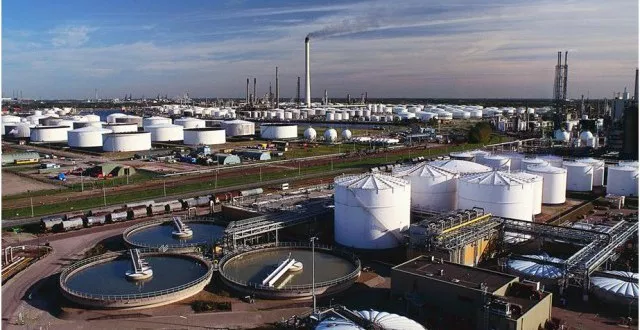Analysts said that Nigeria’s crude oil and gas import expenditures increased by more than 21% yearly over five years to over $25 billion in the fiscal year 2022, amid growing foreign exchange difficulties.
Rising import costs continue to be a major factor in Nigeria’s cash exodus. Low crude oil refining capability by local infrastructure as a result of years of government neglect causes oil import, which has shown to be detrimental to the amount of FX inflow.
Along with persistent currency market intervention, increasing oil and gas import costs have always been a drawback of Nigeria’s efforts to build up its foreign reserves. Nigeria is a significant exporter in Africa, but due to issues with output level, its foreign reserves remain below $40 billion.
In a market review, analysts at Afrinvest Limited attribute rising crude oil and gas imports to local refineries’ inefficiencies and other supply chain bottlenecks. The Nigerian government has been unable to solve the supply chain equation that reduces the country’s upside advantage as an oil exporting nation.
In its macroeconomic note, Afrinvest Limited analysts said they expect the federal government to reduce its import bills on fuel, thereby reducing FX pressures.
“Over the last five years, Nigeria’s crude oil and gas imports rose by a cumulative annual growth rate of 21.1% to $24.9 billion in 2022 due to inefficiencies of local refineries among other factors”, Afrinvest said in its macroeconomic note.
Oil production fell to 998,602 barrels per day (bpd), a 21.26 percent decline compared to March when output was 1,268,202 bpd, the Nigerian Upstream Petroleum Regulatory Commission (NUPRC) disclosed this in its latest crude oil and condensate production data for April 2023.
The volume of production is at its lowest point in the last seven months. In 2022, oil production fell below one million bpd in August and September owing to several issues, including oil theft.
NUPRC report shows that oil production decreased from 1.517 million bpd in March 2023 to 1.245 million bpd in April 2023, with the addition of condensate.
Speaking about the current oil output, Gbenga Komolafe, chief executive officer (CEO) of the NUPRC, on Wednesday, said oil production is currently about one million bpd below “its technically allowable capacity”.
Komolafe attributed the low oil production to a number of issues, including the energy transition’s impact on hydrocarbon funding, a lack of investments, and insecurity.
Oil production including condensates fell to a low of 1.1 mbpd in July 2022, averaging 1.5 mbpd for the full year, from 2.1 in 2019, due to oil theft, pipeline vandalism, ageing infrastructure, and low investment.
Production recovered to 1.6 million barrels per day (mbpd) in March, helped by a resumption of the Forcardos terminal and Trans-Niger pipeline, and a stepping-up of onshore surveillance to tackle theft.
Fitch forecasts a further increase to 1.75 mbpd in 2024, saying that there will be a marked increase in refining capacity in 2023 when the Dangote plant commences operations reducing import costs. Dangote Refinery is expected to come on stream with 0.65 mbpd capacity.
“Dangote refinery present major opportunity to block FX drain”, Afrinvest said in a report. The investment firm however added that the private infrastructure is short of being a silver bullet to all of Nigeria’s FX, energy, and revenue crises.
In 2022, non-oil export revenue came in at $5.6 billion, according to the Central Bank of Nigeria but crude oil export remains the country’s main source of revenue and foreign exchange earnings, analysts said.
In a report, Cowry Asset Managers said the decline in production will have a negative impact on the government’s finances. Nigeria’s daily crude oil production has averaged 1.21 million barrels per day (bpd) so far in 2023, despite the uncertainty and other forms of sabotage and vandalism that have befallen the sector.
In April, there were a number of attacks on oil pipelines, which resulted in a loss of production. Nembe Creek Trunk Line (NCTL) was attacked on April 1, 2023, and the Trans Niger Pipeline (TNP) was attacked on April 15, 2023.
These attacks resulted in the loss of about 200,000 barrels per day of production, analysts said, adding that a number of technical issues affected production in April, including problems with wells and equipment. Last month, Bonga field, which produces about 200,000 barrels per day, was shut down for maintenance in April.













